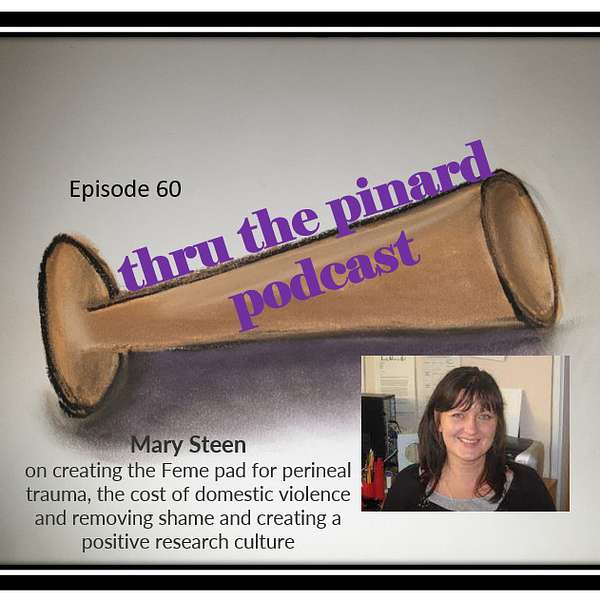
thru the pinard Podcast
a conversational podcast with @Academic_Liz with midwives & other birth professionals about their studies/ research & how it's changing our practice globally - email thruthepinard@gmail.com
thru the pinard Podcast
Ep 60 Mary Steen on creating the Feme pad for perineal trauma, the cost of domestic violence and creating a positive research culture
message me: what did you take away from this episode?
Ep 60 (ibit.ly/Re5V) Mary Steen on creating the Feme pad for perineal trauma, the cost of domestic violence and removing shame and creating a positive research culture
@PhDMidwives #MidTwitter #research #midwifery @MidwivesACM @world_midwives #asgoodasanyonebutbetterthannoone
paper link- t.ly/3GHlH
TRIGGER warning for some UK midwives
Mary Steen, a seasoned midwife whose stories and experiences offer a window into the riveting world of midwifery. From the bustling wards of Leeds to the tranquil ambience of Wakefield, Mary's journey is not just a personal narrative but a chronicle of the evolution of midwifery itself.
Ever heard of Feme Pad? It's an innovation that started as a personal need and developed into an NHS-backed project aimed at post-birth healing for women. The creation of the Feme Pad is just one testament to Mary's dedication to women's health. But her journey didn't stop there. Juggling her PhD with other responsibilities, Mary faced surprises and challenges in her research that paved the way to new discoveries and insights. And Mary's influence extends beyond the UK. Her work in midwifery research has had a global impact, especially in Africa where a World Bank grant has helped midwives across the continent.
Do you know someone who should tell their story?
email me - thruthepodcast@gmail.com
The aim is for this to be a fortnightly podcast with extra episodes thrown in
This podcast can be found on various socials as @thruthepinardd and our website -https://thruthepinardpodcast.buzzsprout.com/ or ibit.ly/Re5V